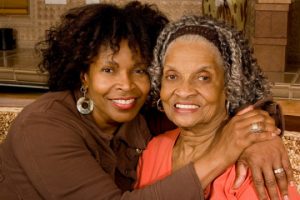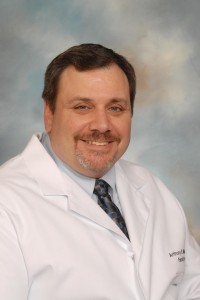Riding on the subway—called the “T” in Boston—the other day, I looked around at all the faces, the feet, the eyes, the shapes, the clothes, the hair. We are all packed together, elbows and hips crammed in narrow seats and jammed standing too. I muse that it would be hard to believe in anything but in inclusivity and the commonality of being human.
There is hardly anything more than egalitarian than being squeezed into a subway car together — skin color, hair styles, how many tattoos or piercings, Italian leather shoes or flip flops or heavy boots, size, age — makes no difference. We are all in this dilemma together with one goal in mind — getting to our destination. The little amount of priority seating is designated for the disabled or the elderly. Money doesn’t buy privilege here. In that sense, it is much more comforting ironically to be on a subway than it is to be on an airplane.
Queueing up for boarding an airplane these days is straight out of Gary Shteyngart’s novel, “Super Sad True Love Story," in which people’s net worth is publicly announced. That is just about what happens at every airport now. The first class passengers board and the pecking order continues from “Platinum” members and finally to the persons with the large number five listed on their boarding passes—the end of the line for those who haven’t paid their way into the status club.
Back to the subway. If only the car was truly the inclusive microcosm of our nation. True, in that underground tube, we are all anonymous and mostly everyone keeps to themselves. Yet, if there were an accident or some sort of stoppage on the train, 10 to one, the sardine can of people would become an instant and intentional community. People would be helping each other.
There is, in most people, an innate sense of care. We connect with the human condition when we recognize others less as “others” and more like “us.”
This fact struck me at a jobsite recently too. My work brings me to places where people are struggling with sudden death. Lately, I have been consulting where a co-worker has died tragically — not in accidents on the job, but in car crashes or suicides. I don’t meet with the families of the deceased but with their colleagues who are also grieving. Friend and co-worker grief is often disenfranchised. Yet, the people we work with are very much a part of our lives—we see them every day. We may also play and recreate with them too. You might say our co-workers become a situational family, given how much time can be spent together.
Older employees may consider younger employees their surrogate sons and daughter and worry about how the loss of a peer will affect them. The younger employees may never have experienced sudden loss and the workplace becomes their first encounter with the pain of grief.
If we didn’t connect to others and create community, we, I suppose, would not experience grief. Yet, how truly sad that would be. For as difficult as loss is, it is the human condition to make connection and community wherever we are. We need it to live.
* Kayta Curzie Gajdos holds a doctorate in counseling psychology and is in private practice in Belmont, Massachusetts. She welcomes comments at MindMatters@DrGajdos.com or (610)388-2888. Past columns are posted to www.drgajdos.com. See book.quietwisdom-loudtimes.com for information about her book, “Quiet Wisdom in Loud Times: The Rise of the Wounded Feminine.”
** The opinions expressed are those of the author and do not necessarily reflect those of the ownership or management of Chadds Ford Live. We welcome opposing viewpoints. Readers may comment in the comments section or they may submit a Letter to the Editor to editor@chaddsfordlive.com
About Kayta Gajdos
Dr. Kathleen Curzie Gajdos ("Kayta") is a licensed psychologist (Pennsylvania and Delaware) who has worked with individuals, couples, and families with a spectrum of problems. She has experience and training in the fields of alcohol and drug addictions, hypnosis, family therapy, Jungian theory, Gestalt therapy, EMDR, and bereavement. Dr. Gajdos developed a private practice in the Pittsburgh area, and was affiliated with the Family Therapy Institute of Western Psychiatric Institute and Clinic, having written numerous articles for the Family Therapy Newsletter there. She has published in the American Psychological Association Bulletin, the Family Psychologist, and in the Swedenborgian publications, Chrysalis and The Messenger. Dr. Gajdos has taught at the college level, most recently for West Chester University and Wilmington College, and has served as field faculty for Vermont College of Norwich University the Union Institute's Center for Distance Learning, Cincinnati, Ohio. She has also served as consulting psychologist to the Irene Stacy Community MH/MR Center in Western Pennsylvania where she supervised psychologists in training. Currently active in disaster relief, Dr. Gajdos serves with the American Red Cross and participated in Hurricane Katrina relief efforts as a member of teams from the Department of Health and Human Services' Substance Abuse and Mental Health Services Administration.Now living in Chadds Ford, in the Brandywine Valley of eastern Pennsylvania, Dr. Gajdos combines her private practice working with individuals, couples and families, with leading workshops on such topics as grief and healing, the impact of multigenerational grief and trauma shame, the shadow and self, Women Who Run with the Wolves, motherless daughters, and mediation and relaxation. Each year at Temenos Retreat Center in West Chester, PA she leads a griefs of birthing ritual for those who have suffered losses of procreation (abortions, miscarriages, infertility, etc.); she also holds yearly A Day of Re-Collection at Temenos.Dr. Gajdos holds Master's degrees in both philosophy and clinical psychology and received her Ph.D. in counseling at the University of Pittsburgh. Among her professional affiliations, she includes having been a founding member and board member of the C.G. Jung Educational Center of Pittsburgh, as well as being listed in Who's Who of American Women. Currently, she is a member of the American Psychological Association, The Pennsylvania Psychological Association, the Delaware Psychological Association, the American Family Therapy Academy, The Association for Death Education and Counseling, and the Delaware County Mental Health and Mental Retardation Board. Woven into her professional career are Dr. Gajdos' pursuits of dancing, singing, and writing poetry.
- Web |
- More Posts(250)



Comments